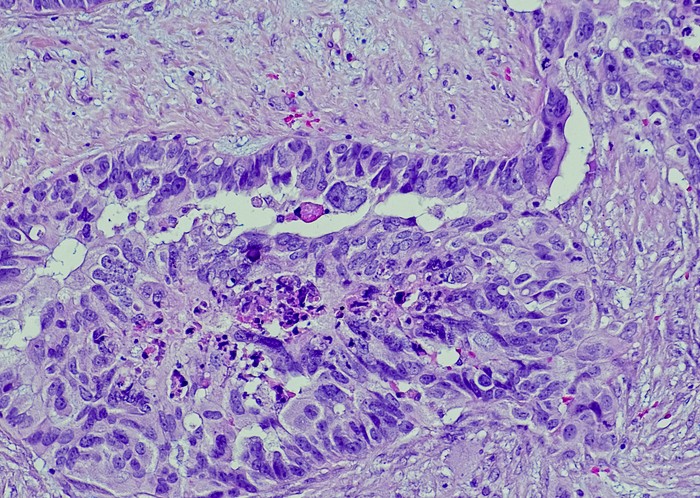
ChemoID test leads to better outcomes in platinum-resistant ovarian cancer
MSN highlights research published in npj Precision Oncology
MSN and MSN UK highlighted results from a new Phase 3 trial published in the journal npj Precision Oncology that found a cancer stem cell test can accurately choose more effective treatments and lead to improved outcomes for patients with platinum-resistant ovarian cancer.
The University of Cincinnati Cancer Center’s Thomas Herzog, MD, the study’s first author, said epithelial ovarian cancer often initially responds to chemotherapy treatment and then enters a period of resistance to therapy and tumor regrowth.
“This is partly due to the selection and reactivation of cancer stem cells (CSCs) that rebuild and repair the tumor from the damage received from chemotherapy,” said Herzog, a Cancer Center physician researcher, the Paul and Carolyn Flory Professor in Gynecologic Oncology in the UC College of Medicine and director of UC Health’s Gynecologic Cancer Disease Center.
Pier Paolo Claudio, MD, who codeveloped the clinical test, said the ChemoID platform challenges the CSCs found in individual patients' tumors against specific anticancer drugs to identify which drugs are likely to be the most effective.
The 81 patients with platinum-resistant ovarian cancer (cancer recurrence within six months of receiving a platinum-based chemotherapy) enrolled in the trial were randomized to have the choice of chemotherapy treatment decided through ChemoID or to have physicians choose using standard methods. Herzog said doctors selecting treatments typically rely on approved therapies, past experiences, patients’ prior treatments, and toxicity or side effects patients have already experienced.
The overall response rate of patients in the ChemoID arm was 50%, compared to 5% for patients in the physician-choice arm. Median progression free survival for patients in the ChemoID arm was 11 months, compared to a median of three months for the physician-choice arm. ChemoID patients had a median duration of response of eight months, compared to five-and-a-half months for physician-choice.
Featured photo at top of ovarian cancer cells. Photo/OGPhoto/iStock.
Related Stories
ChemoID test leads to better outcomes in platinum-resistant ovarian cancer
April 7, 2025
MSN and MSN UK highlighted results from a new Phase 3 trial published in the journal npj Precision Oncology that found a cancer stem cell test can accurately choose more effective treatments and lead to improved outcomes for patients with platinum-resistant ovarian cancer.
Combination therapy is not beneficial for certain patients with ovarian cancer
March 20, 2025
OncLive and MedPage Today highlighted research presented by the University of Cincinnati Cancer Center's Thomas Herzog that found a combination therapy of afuresertib and paclitaxel did not lead to better survival outcomes when compared to only treating with paclitaxel in patients with platinum-resistant ovarian cancer.
Add-on metformin promising in ER-positive endometrial cancer
March 24, 2025
The University of Cincinnati Cancer Center's Amanda Jackson was featured in a MedPage Today article commenting on new research that found adding metformin as a combination therapy was tied to deep responses and prolonged progression-free survival in some patients with recurrent estrogen receptor-positive endometrial cancer.
